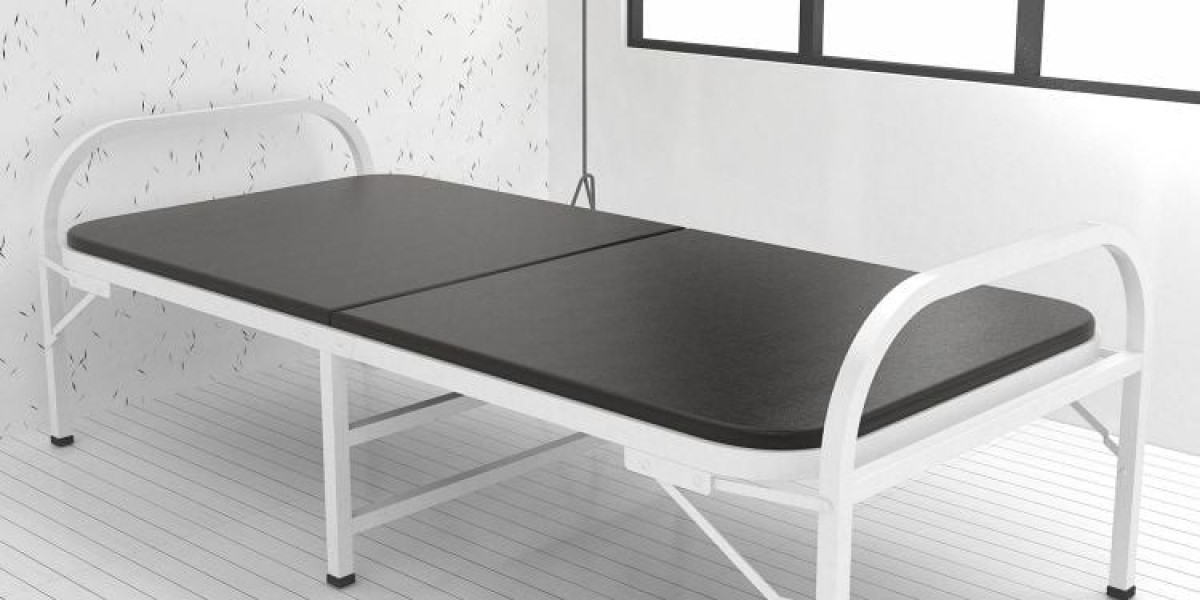When it comes to optimizing space in your home, a folding bed (also known as a foldable bed) is an excellent solution. Whether you need an extra sleeping arrangement for guests or a versatile piece of furniture for a small apartment, choosing between a metal folding bed and a wooden folding bed can be challenging. Both materials have unique advantages, and the right choice depends on your needs, style preferences, and budget.
In this guide, we’ll compare metal vs wooden folding beds, highlighting their pros, cons, and best use cases to help you decide which is the best fit for your home.
1. Durability and Strength
Metal Folding Beds
Metal foldable beds are known for their sturdiness and longevity. Typically made from steel or iron, these beds can withstand heavy use without warping or cracking.
✅ Pros:
Extremely durable and resistant to wear and tear.
Can support heavier weight capacities compared to wooden beds.
Less prone to damage from moisture or pests.
❌ Cons:
Can be prone to rust if not properly treated or maintained.
May feel colder and less inviting compared to wood.
Wooden Folding Beds
Wooden folding bed offer a classic, warm aesthetic that blends well with most home décor styles. They are usually made from solid wood, plywood, or engineered wood.
✅ Pros:
Natural, elegant look that enhances home décor.
Warmer and cozier compared to metal beds.
Can be refinished or repainted to match changing styles.
❌ Cons:
Susceptible to scratches, dents, and moisture damage.
May warp over time if exposed to humidity.
Generally has a lower weight capacity than metal beds.
Verdict: If durability and strength are your top priorities, a metal folding bed is the better choice. However, if aesthetics and warmth matter more, a wooden folding bed may be ideal.
2. Style and Aesthetics
Metal Folding Beds
Metal foldable beds often feature sleek, modern designs with minimalist frames. They work well in contemporary, industrial, or minimalist-themed spaces.
✅ Pros:
Clean, modern look that fits well in urban apartments.
Available in various finishes (black, silver, bronze, etc.).
Often has a slimmer profile, making it great for small spaces.
❌ Cons:
Can feel too cold or clinical for traditional or rustic interiors.
Limited design flexibility compared to wood.
Wooden Folding Beds
Wooden folding beds bring a natural, timeless charm to any room. They come in different wood tones (oak, walnut, pine, etc.) and can feature intricate carvings or smooth finishes.
✅ Pros:
Versatile—suits rustic, farmhouse, traditional, and modern décor.
Warm and inviting appearance.
Can be customized with stains or paints.
❌ Cons:
May look outdated if not chosen carefully.
Bulkier designs may take up more visual space.
Verdict: If you prefer a modern, space-saving look, go for metal. If you want a cozy, classic vibe, wooden folding beds are the way to go.
3. Comfort and Support
Both metal and wooden folding beds can provide excellent comfort, but their construction affects mattress support.
Metal Folding Beds
Often feature a grid or slat system for mattress support.
Provides firm support, ideal for those who prefer a sturdy feel.
Can sometimes feel less cushioned due to the rigid frame.
Wooden Folding Beds
Typically use wooden slats, which offer a bit more flexibility.
Absorbs slight movements better, reducing noise.
May feel more comfortable for long-term use.
Verdict: If you prioritize firm support, metal is great. For a slightly softer feel, wooden foldable beds may be preferable.
4. Portability and Ease of Use
Since the main appeal of a folding bed is space-saving convenience, how easy it is to move and store matters.
Metal Folding Beds
✅ Pros:
Lighter in weight, making them easier to fold and move.
Often comes with wheels for better mobility.
❌ Cons:
Can be noisy when unfolding or adjusting.
Wooden Folding Beds
✅ Pros:
Sturdier when set up, with less wobbling.
Quieter operation compared to metal.
❌ Cons:
Heavier, making them harder to move frequently.
Verdict: If you need a foldable bed that’s easy to move, metal wins. If stability is more important, wooden is better.
5. Maintenance and Longevity
Metal Folding Beds
Requires occasional dusting and checking for rust.
Can be wiped clean easily.
Powder-coated finishes resist scratches.
Wooden Folding Beds
Needs polishing or refinishing over time.
Vulnerable to scratches and water damage.
May require wood conditioner to prevent drying.
Verdict: Metal folding beds are lower maintenance, while wooden ones need more care but offer timeless appeal.
6. Price and Budget Considerations
Metal folding beds are usually more affordable.
Wooden folding beds tend to be pricier, especially if made from solid wood.
Verdict: If budget is a concern, metal is cost-effective. For a premium look, invest in wooden foldable beds.
Final Decision: Which Folding Bed is Best for You?
| Factor | Metal Folding Bed | Wooden Folding Bed |
|---|---|---|
| Durability | ✔️ More durable | ❌ Prone to scratches |
| Aesthetics | Modern, industrial | Warm, classic |
| Comfort | Firm support | Slightly softer |
| Portability | Lightweight, easy to move | Heavier, stable |
| Maintenance | Low maintenance | Requires more care |
| Price | Budget-friendly | More expensive |
Choose a Metal Folding Bed If:
✔ You want a durable, long-lasting option.
✔ You prefer a modern, minimalist style.
✔ You need an affordable, easy-to-move solution.
Choose a Wooden Folding Bed If:
✔ You love a cozy, traditional look.
✔ You prioritize aesthetics and warmth.
✔ You don’t mind a slightly higher price for premium quality.
Conclusion
Both metal and wooden folding beds have their unique benefits. If you need a foldable bed that’s sturdy, lightweight, and modern, metal is the best choice. If you prefer a folding bed that adds warmth and elegance to your space, wooden is the way to go.
Consider your home’s décor, budget, and usage needs before making a decision. Whether you choose metal or wood, a folding bed is a smart investment for maximizing space without sacrificing comfort.








